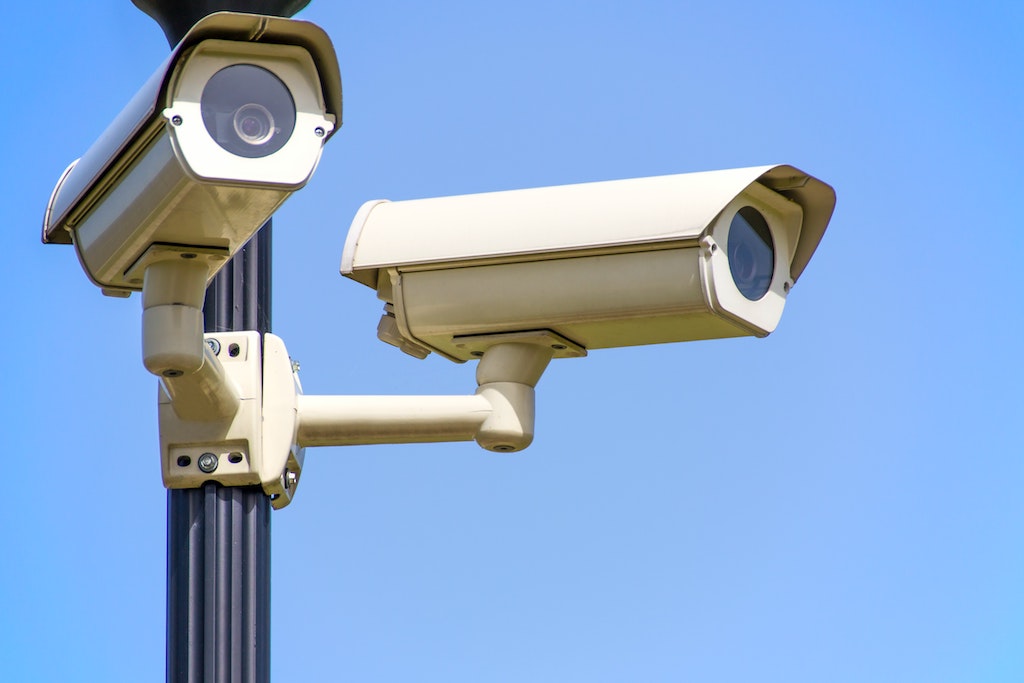There is no denying that our homes are our safe havens. They symbolize a space of comfort and security, and we continuously seek ways to enhance this sense of safety. Home security systems are a popular way to protect your home. While traditional home security systems have done an impressive job over the years, they have limitations. Enter the era of the smart home security system. But what is a smart home security system?
What is a smart home security system?
A smart home security system is a highly advanced, interconnected web of devices that work together to provide comprehensive security solutions for your home. This system utilizes home automation and Internet of Things (IoT) technology to monitor and manage your home’s security seamlessly and intuitively.
Components of a smart home security system
A smart home security system is composed of multiple interconnected devices, each performing a unique function that contributes to the overall security of your home.
- Smart cameras: These devices are far more than just regular surveillance cameras. They are equipped with advanced features such as:
- Facial recognition: This can identify known faces and alert you if someone unfamiliar is seen.
- Motion detection: Alerts you if unusual or unexpected movement is detected.
- Live streaming: Allows you to view live footage from your cameras anytime, anywhere, via a smartphone app.
- Smart locks: These devices take the traditional lock and key to a whole new level, offering features like:
- Remote access: Gives you the ability to lock and unlock your doors remotely from your smartphone.
- Unique access codes: Allows you the ability to create unique codes for different people, allowing you to track who comes and goes.
- Smart sensors: These devices serve as the eyes and ears of your Smart Home Security System, providing features such as:
- Motion sensors: Alerts you if movement is detected when your home should be empty.
- Glass break sensors: Designed to alert you if the sound of breaking glass is detected, possibly indicating a break-in.
- Door/window sensors: Notifies you if a door or window is opened unexpectedly.
- Smart alarms: These devices can be programmed to trigger a loud alarm and/or send alerts in response to specific events, like unauthorized entry or smoke detection.
- Smart lighting: Smart lights can be controlled remotely, and can also be programmed to turn on and off at specific times or in response to certain events. This can mimic regular home activity, potentially deterring would-be intruders.
How smart home security systems Work
Smart home security systems use wireless technology to connect and coordinate all these devices. A central hub, or control panel, acts as the system’s brain, communicating with individual devices via Wi-Fi, ZigBee, Z-Wave, or other wireless protocols.
A user-friendly smartphone app serves as your interface with the system. You can use this app to control the system – arm or disarm it, lock or unlock doors, view real-time video footage, receive instant alerts, and even customize the settings of each device.
Some systems also allow for voice control via smart home assistants like Amazon’s Alexa or Google’s Assistant, providing even greater convenience and flexibility.
The system represents the merging of advanced technology with home security, creating a dynamic and effective solution that offers peace of mind like never before.
Key benefits of a smart home security system
Investing in a smart home security system isn’t just about purchasing a product. It’s a significant move towards enhancing the safety and security of your household. Here are some key benefits that come with this choice:
Enhanced Security
One of the primary advantages of a smart home security system is an enhanced sense of security. The devices are all interconnected, ensuring they function seamlessly to safeguard your home. These include:
- Real-time monitoring and alerts: With smart security cameras and sensors in place, you can monitor your home in real-time, 24/7. Plus, if there’s any unusual activity, you’ll receive an alert instantly on your smartphone or other devices, enabling you to take immediate action.
- Preemptive security measures: Some smart home security systems are equipped with AI capabilities to identify and alert you about potential threats before they become actual risks.
- Deterrent to intruders: The mere presence of security devices can deter potential intruders from targeting your home.
Remote access
Smart home security systems give you complete control, no matter where you are. This remote access comes with several benefits.
- Swift response to alerts: If your system sends an alert, you can verify the threat through live footage and react immediately, regardless of location.
- Constant control: Through the system’s app, you can monitor, arm or disarm your system, lock or unlock doors, and even adjust your smart lights.
- Routine check-ups: If you’re away for extended periods, you can routinely check your home status to ensure everything is safe and secure.
Integration with home automation
The system is designed to integrate with other home automation devices. This results in a unified, smart home ecosystem that enhances not only security but also the overall efficiency of your home. Here’s how:
- Efficient functioning: By connecting your smart security system with other smart devices, like thermostats or lights, you can create routines or automations. For instance, your lights can be programmed to turn on when detecting motion.
- Unified control: With the integration, all your smart devices can be controlled from a single app, making it easier to manage your home.
Customizability
Flexibility is another significant advantage. You can start with a few essential devices and add more over time based on your needs and budget. This scalability allows your system to grow with you, ensuring you always have the right level of security.
Lower insurance costs
Having a security system can also have financial benefits. Many insurance companies recognize the value of such systems and offer discounts on home insurance premiums for homes equipped with them. This could lead to substantial savings over time, offsetting the system’s initial cost.
How to choose a smart home security system
Selecting the right smart home security system may seem overwhelming, given the array of options available in the market. However, by considering the following factors, you can ensure you choose a system that best suits your needs.
Your specific needs
The first step to choosing a system is to evaluate the security needs of your home. This will vary based on various factors.
- Home size and layout: The size of your home and its layout will determine how many devices you’ll need for complete coverage. A larger home with multiple entry points may require more sensors and cameras.
- Neighborhood security: If you live in an area with higher crime rates, you might opt for a more comprehensive system with additional security features like glass break detectors or security cameras.
- Your lifestyle: If you travel frequently or have large pets, you may need a system to accommodate these aspects.
Compatibility
Check that your system is compatible with any other smart home devices you use or plan to add. This is important for creating an integrated smart home ecosystem. Some systems may work best with certain smart home ecosystems, such as Google Home, Amazon Alexa, or Apple HomeKit, so consider this when deciding.
Ease of use
A smart home security system should be user-friendly and easy to navigate. The system’s app should have an intuitive interface that allows you to easily control and monitor your system, receive alerts, and customize settings. Try out the app before purchasing to ensure it meets your expectations.
Installation
Consider whether you’re comfortable with a DIY installation or would prefer a professional installation. Some smart home security systems are designed for easy, DIY installation, which can save you the cost of professional installation. However, other systems may be more complex and require professional installation. Remember that while DIY installation can be cheaper, professional installation can provide peace of mind that everything has been set up correctly.
Cost
Finally, consider the costs involved. This includes the upfront cost of the equipment and installation and ongoing costs like monthly or yearly monitoring fees. Some systems may also offer optional services for an additional fee, such as professional monitoring or cloud storage for video footage. Ensure the system fits within your budget, considering initial and ongoing costs.
In today’s interconnected world, a smart home security system is no longer a luxury but a necessity, giving you complete control over the security of your home from anywhere in the world. Whether you choose a basic or extensive setup, your choice should align with your needs, lifestyle, and budget. Investing in a smart home security system means you’re not just buying a product but making a lifelong commitment to safety and peace.



